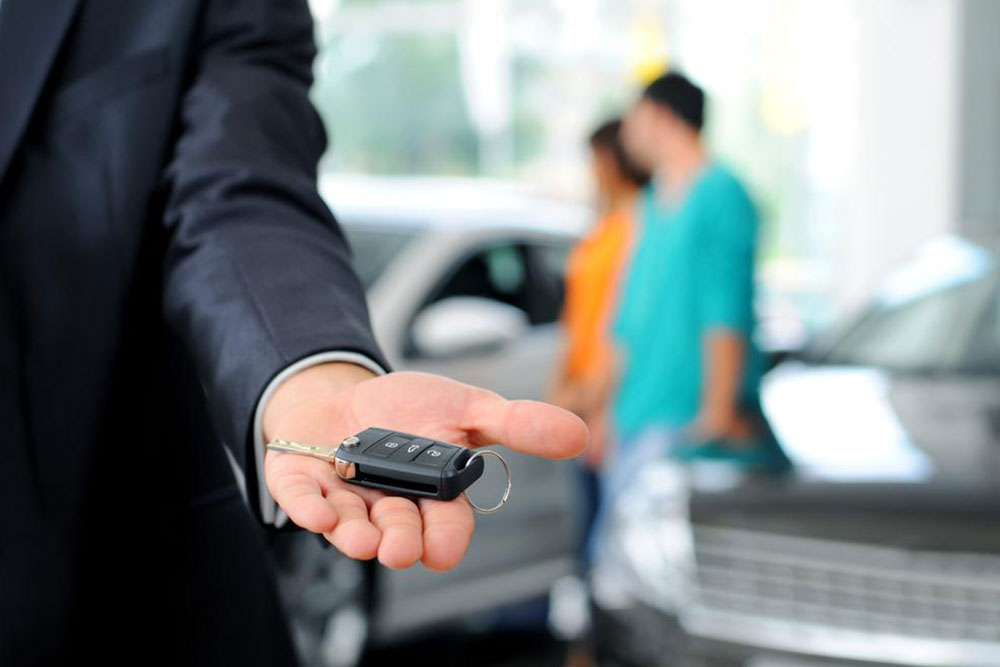Comprehensive Guide to Purchasing a Car Without a Down Payment
Discover comprehensive strategies for buying a car without a down payment. Learn about full-financing options, dealer promotions, and tips to make smart purchasing decisions. This guide helps you understand the pros and cons of zero-down car financing, ensuring you choose the best plan tailored to your financial situation for effective vehicle ownership.

Comprehensive Guide to Purchasing a Car Without a Down Payment
Embarking on the journey to buy a car without making an initial down payment can be an enticing prospect for many consumers. This financial strategy opens doors for individuals who may not have amassed a significant savings pool but still aspire to own a vehicle. Zero-down financing options are increasingly popular and provide a flexible approach to vehicle ownership. However, understanding the intricacies, benefits, and potential pitfalls associated with buying a car without a down payment is essential before committing. This detailed guide explores the methods, advantages, disadvantages, and tips for successfully purchasing a car without an upfront payment, ensuring readers make informed decisions tailored to their financial situations.
Understanding How Zero-Down Car Financing Works
Zero-down car financing encompasses several options that allow buyers to acquire a vehicle without making an initial cash payment. These options are typically structured through auto loans, special dealership deals, or leasing arrangements. Grasping how each functions will help prospective buyers choose the most suitable path for their financial circumstances.
1. Full-Finance Auto Loans
Many financial institutions, including banks, credit unions, and online lenders, offer full-finance auto loans that cover the entire purchase price of a vehicle. In this arrangement, the lender directly pays the dealership, and the borrower agrees to repay the loan in installments over a specified period, usually with interest. This method requires a thorough assessment of the borrower's creditworthiness, income stability, and overall financial health. While attractive for eliminating the need for a cash deposit, these loans often come with higher interest rates because of the larger principal amount borrowed.
2. Dealer Zero-Down Promotions
Car dealerships frequently promote zero-down deals as part of marketing campaigns to attract customers. These promotional offers may seem highly beneficial, especially for first-time buyers or those with limited savings. Typically, dealers arrange for the financing directly or through partner lenders, absorbing some of the initial costs to close the sale. However, buyers should exercise caution: such deals can sometimes lead to increased overall costs, either through elevated interest rates, extended loan terms, or additional fees. It's critical to scrutinize the fine print and compare these offers with other financing options before proceeding.
Buying Used Cars with Zero Down — A Cost-Effective Strategy
Opting to finance used cars without making a down payment can be a savvy choice, given the generally lower purchase prices compared to new vehicles. The reduced cost not only makes the initial purchase more accessible but also results in smaller loan amounts, which can translate to lower monthly payments.
Advantages of Choosing Used Vehicles
Lower Purchase Price: Used cars typically cost significantly less than new ones, allowing for easier financing and reducing the total loan required.
Broader Selection: The used car market offers a diverse range of reliable, budget-friendly options that suit various preferences and needs.
Faster Depreciation: New cars lose value quickly in the first few years, whereas used cars depreciate at a slower rate, maintaining more of their value over time.
Critical Factors When Shopping for Used Cars
Vehicle History and Inspections: Always review comprehensive vehicle history reports and conduct professional pre-purchase inspections to ensure the car's condition and uncover any hidden issues.
Mileage Considerations: Lower mileage vehicles tend to be more reliable and have a longer lifespan, making them preferable for long-term ownership.
Negotiation: Despite promotional zero-down deals, buyers should always attempt to negotiate the purchase price to secure the best deal possible.
Pros and Cons of Zero-Down Payments
Advantages: Eliminates the need for an immediate cash investment, enabling quicker vehicle ownership and less upfront financial strain.
Disadvantages: Typically results in higher interest rates due to larger loan amounts, and longer repayment periods can lead to paying more interest overall. Additionally, there's a risk of owing more than the vehicle's current market value, especially with rapidly depreciating used cars, resulting in negative equity.
Strategies for Making Smart Zero-Down Car Purchases
Check Your Credit Score: A good credit score can qualify you for better interest rates and more favorable loan terms.
Compare Multiple Lenders: Explore offers from various institutions such as ICICI, HDFC, and Axis Bank to find the most advantageous financing deals.
Assess Total Ownership Costs: Remember to incorporate additional expenses like insurance, fuel, maintenance, and repairs when budgeting for your vehicle.
Maintain an Emergency Fund: Set aside savings to cover unexpected repairs or maintenance, reducing financial stress during ownership.
In conclusion, zero-down car financing offers a practical route for individuals eager to own a vehicle without upfront cash. However, understanding the financial commitments involved, comparing different options, and planning for ongoing expenses are essential for making responsible choices. By taking prudent steps and conducting thorough research, buyers can enjoy their new vehicle while maintaining a healthy financial profile.





